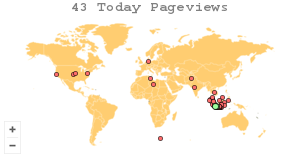AL QUR’AN SEBAGAI SUMBER ILMU PENGETAHUAN
DOI:
https://doi.org/10.47498/bashair.v1i2.844Keywords:
Alquran, ScienceAbstract
The qur 'an and the hadith as the basis of islamic teaching, not only set the affairs of the urighteous alone, but also contain passages relating to science and technology (iptek). Many verses both the qur 'an and the hadith signal about science such as biology, history, astronomy, and much more. Science is one of the main content of the holy scriptures of the qur 'an. Even the word 'ilm itself is called in the qur 'an 105 times, but in the sense that it has been called over 744 times that is indeed one of the needs of Islam. This word science is used in the sense of the process of attainment of knowledge. Intact study requires the use of scientific, philosophical, humanities, historically, sociological, and doctrinal methods. Learning the qur 'an in order to discover values that are able to bend lil alaamin requires a highly intelligent role but must be remembered that human intelligence contains limitations. Therefore, to feel the content of the qur 'an intact and thoroughly requires theological, philosophical, scientific, and sensory thinking. This requirement was necessary because not all problems were solved or resolved merely by philosophical thought but required other methods that could be used together.
Downloads
Published
Issue
Section
License
Authors who publish articles in Basha'ir: Jurnal Studi Al-Qur'an & Tafsir agree to the following conditions:
- The author retains copyright and grants the Basha'ir Journal the right from the first publication with the work simultaneously licensed under a Creative Commons Attribution-ShareAlike 4.0 International (CC BY-SA 4.0) license that allows others to make changes, adjust and build on the work with recognition of the author's work and initial publication in the Journal.
- Authors are allowed to copy and redistribute published versions of works in journals (for example, posting them to institutional repositories or publishing them in a book), with recognition of their initial publication in Basha'ir: Jurnal Studi Al-Qur'an & Tafsir.
- Authors are allowed and encouraged to post their work online (for example, in institutional repositories or on their websites) before and during the submission process, as it can lead to productive exchanges, and increase citations of published works






